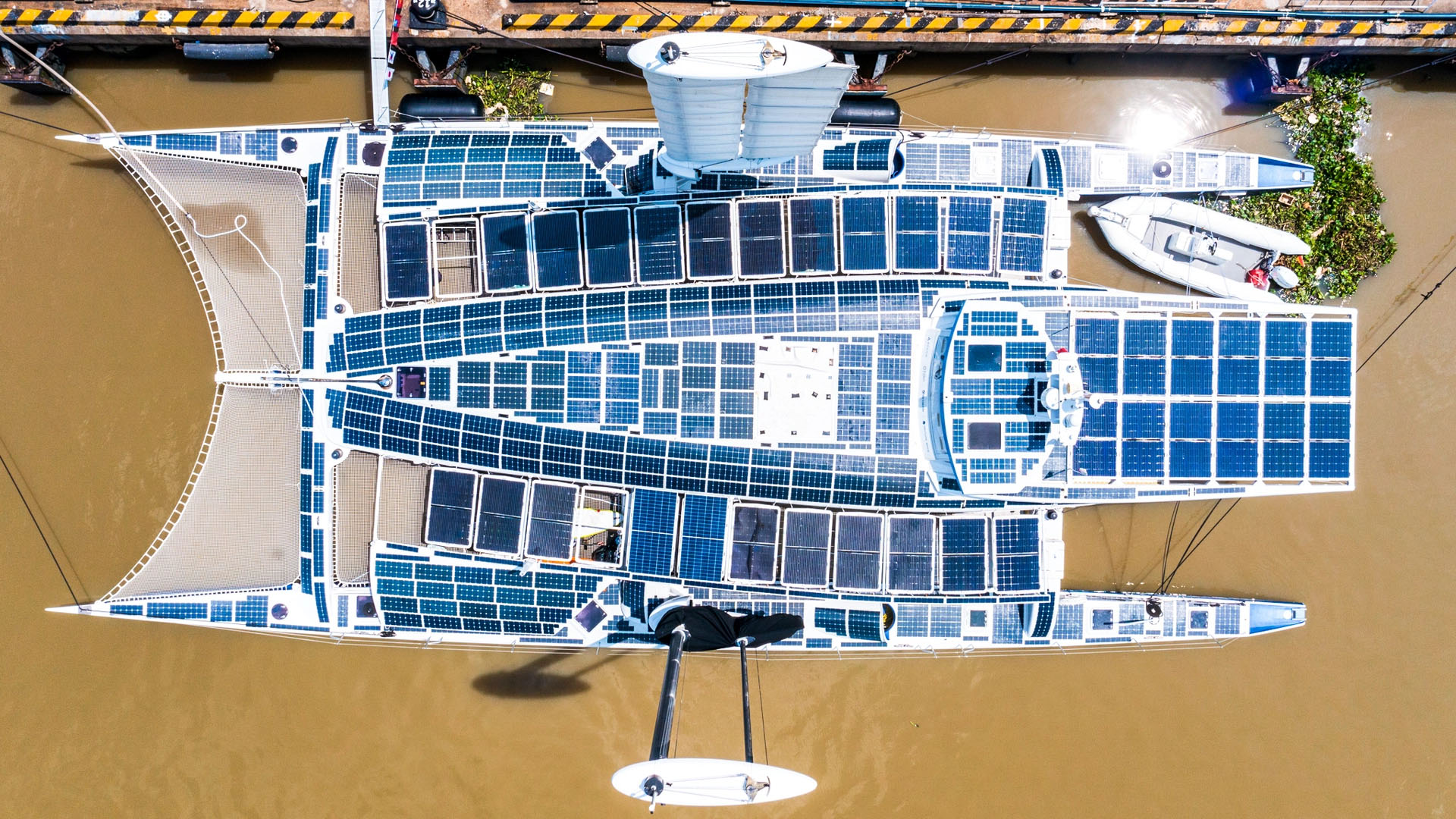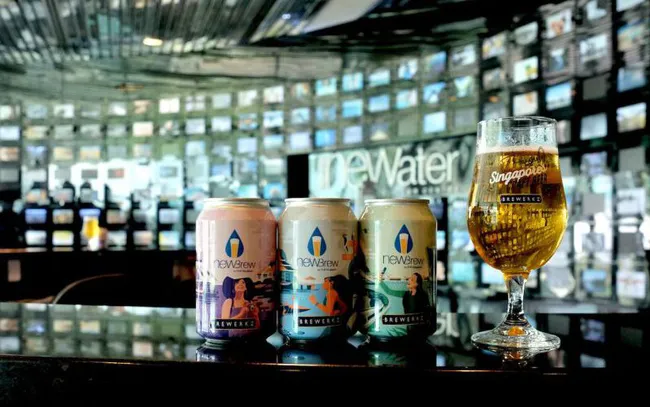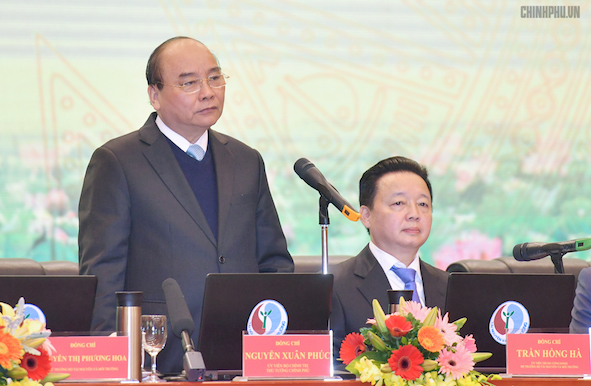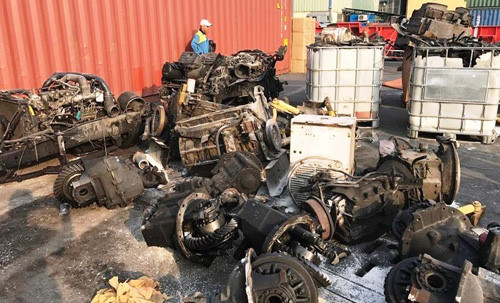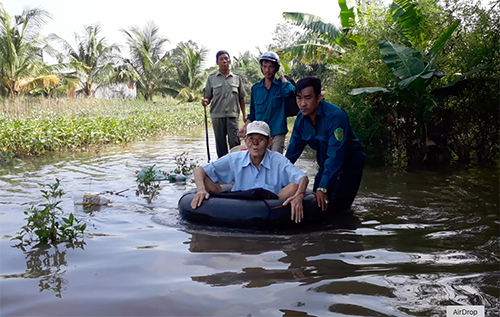On November 22, in Hanoi, the Ministry of Natural Resources and Environment in collaboration with the German Development Cooperation Organization (GIZ) and the United Nations Population Program (UN-Habitar) held a workshop on "Construction Deployment". marine planning and project introduction on improving the environmental conditions of human settlements and coastal ecosystems in the Mekong Delta, Vietnam”.
The seminar was attended by a large number of experts, scientists, policy makers from the Ministry of Natural Resources and Environment, international organizations in Vietnam and leaders of the coastal provinces of the Delta. Mekong River.
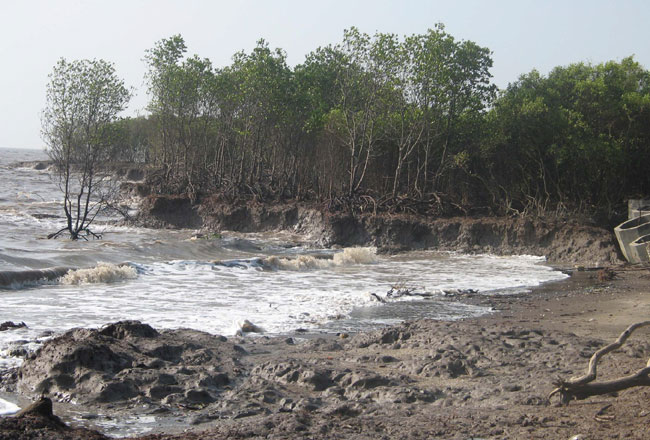
Photo: IE
Speaking at the workshop, Deputy Minister of Natural Resources and Environment Tran Quy Kien said: XXI century - "The century of oceans", seas and islands are becoming more important for each country and territory. earth. Along with economic growth and population growth, the land's non-renewable natural resources are gradually depleted. Countries with the sea have been increasingly reaching out to sea, exploiting resources from the sea, enriching from the sea, controlling the sea.
Vietnam is a coastal country in the East Sea with a sea area 3 times larger than the land area, accounting for about 29% of the East Sea area, including sea areas within 200 nautical miles, continental shelf and two offshore island clusters are Hoang Sa and Truong Sa. Our country's coastline extends over 3,200 km (excluding the shores of islands) with about 2,700 coastal islands distributed in lines and is the main "fulcrum" for marine economic development associated with national defense. marine security.
The sea and islands have been attached for many generations to each people along the coast and on the islands of Vietnam, both in cultural life, production activities and in the struggle against foreign invaders. Seas and islands have a particularly important position for the overall development of the country in terms of economy, geopolitics and defense and security issues.
At present, marine economic development has not really been harmoniously linked with social development and environmental protection. The advantages and potential as a gateway to the world from the sea have not been fully promoted. The implementation of the policy of developing a number of key marine economic sectors has not met the set requirements. In particular, the connection between sea and coastal areas and inland areas, localities with sea and localities without sea and between sectors and fields is still not tight and inefficient.
Marine environmental pollution is still serious in many places, plastic waste pollution has become an urgent problem, marine ecosystems and marine biodiversity are reduced; some marine resources are overexploited; The response to climate change, sea level rise and sea erosion is still inadequate and limited.
The 8th Conference of the 12th Central Committee of the Party Central Committee met, discussed and issued Resolution No. 36-NQ/TW on the Strategy for sustainable development of Vietnam's marine economy to 2030, with a vision to 2045. In which, the solution "to perfect institutions, policies, strategies, master plans and plans on sustainable development of the marine economy" is one of the seven main solutions to implement the Resolution. Specifically: “review, supplement and develop synchronously new strategies, master plans and plans related to sea and islands in the direction of integrated management, suitable to the marine ecosystem, ensuring the coherence Harmonious and synchronous connection between conservation and development of land areas, coastal zones, exclusive economic zones and continental shelves. Expeditiously develop a national marine spatial plan and a master plan on sustainable exploitation and use of coastal resources.
Implementing the Law on Planning, the Law on natural resources and environment of sea and islands under the direction of the Government, the Prime Minister, the Ministry of Natural Resources and Environment is actively developing the national marine spatial planning and the master plan on exploitation and sustainable use of natural resources in coastal areas of the country.
Delegates at the workshop focused on discussing the following issues: Contents and approaches to building the National Marine Spatial Planning and the Master Plan for sustainable exploitation and use of coastal resources of the whole country. ; project to improve environmental conditions for human settlements and coastal ecosystems for the Mekong Delta.
Environmental News – Hoang Nam

